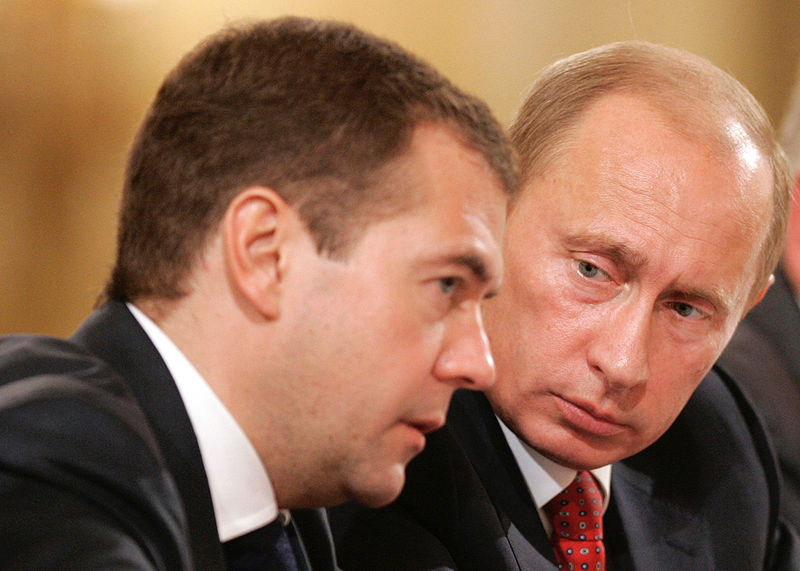Russian Defrost?
 This month, Russian President Dmitri Medvedev sent a bill to the Duma calling for the reinstatement of direct gubernatorial elections by the people of Russia’s provinces. The governors of Russia’s provinces currently are appointed by the Kremlin, which, through its dominating majorities in the Duma, did away with direct elections in 2004. The Kremlin can also fire governors essentially at will, resulting in governors who are more interested in serving the interests of President Medvedev and Prime Minister Vladimir Putin than in working with their own constituencies.
Is this new bill the beginning of a countrywide thaw in the Russian political system or simply a Kremlin public relations move to try and convince the protestors from last month’s largest public demonstrations since the early 1990s to stay home? Is it indicative of a Putin desire for less fraudulent elections?
This month, Russian President Dmitri Medvedev sent a bill to the Duma calling for the reinstatement of direct gubernatorial elections by the people of Russia’s provinces. The governors of Russia’s provinces currently are appointed by the Kremlin, which, through its dominating majorities in the Duma, did away with direct elections in 2004. The Kremlin can also fire governors essentially at will, resulting in governors who are more interested in serving the interests of President Medvedev and Prime Minister Vladimir Putin than in working with their own constituencies.
Is this new bill the beginning of a countrywide thaw in the Russian political system or simply a Kremlin public relations move to try and convince the protestors from last month’s largest public demonstrations since the early 1990s to stay home? Is it indicative of a Putin desire for less fraudulent elections?
Leaders from the organized opposition, like the Communist Party, have already criticized the move as meaningless because of the Kremlin’s continued ability to dismiss governors under the auspices of fighting corruption. These dismissals, however, will be appealable in the Russian court system.
Will this measure assuage the continued anger that welled up in the December protests and affect the March presidential election? No, not at all. The protests in December were not even so much against Putin’s policies, which were nothing new, but rather against Putin himself, against seeing Putin as the head of Russia for what will near twenty years by the end of another six year term. This change in governor policy may not have any effect on Putin’s ability to win this year or the level of fraud he is willing to use to do so. It may, however, have an effect on the reason why Putin will almost definitely be President six months from now.
Right now, there is no one else.
The current crop of Russian presidential candidates who are not Vladimir Putin includes the usual cast of weak Duma opposition characters that have been running since the mid-1990s; a man who, when running for president in 2004, said, “We all want Vladimir to be the next president;” and the mildly ridiculous billionaire New Jersey Nets owner, Mikhail Prokhorov, who famously could not remember where his yacht was. None of these candidates, even Gennady Zyuganov, whose Communist Party received 19 percent of the vote in the last election, represent the new direction for which the protestors march.
So who cares about governors? These guys aren’t governors.
Exactly.
The opposition presidential candidates are not leaders of political movements that aggregate the interest of the Russian people. They are really just completely ideological, promoting the abstract idea of “right wing nationalism” or “social democracy,” with the possible exception of the real remembrances of the Communist Party. The direct election of governors will allow for alternatives to Putin’s United Russia to exist not solely in the abstract, but to begin creating new policies at the regional level. These regional differences can then showcase real alternatives to the current Kremlin power consolidation, leading perhaps to a substantive opposition on the presidential level.
This reform, while not the beginning of a spring 2012 thaw, has the potential to create a more robust Russian democracy in the extended future. Russia’s status as a federation under Putin’s regime has not been able to effectively balance the power of the Kremlin. But the spread of political power to the provinces, combined with a presidential election that could be forced into a runoff this summer, could soften the ground for the seeds of better democracy.
For more coverage on Russian politics, click here to read Jordan Kalms's "Russian Winter."
